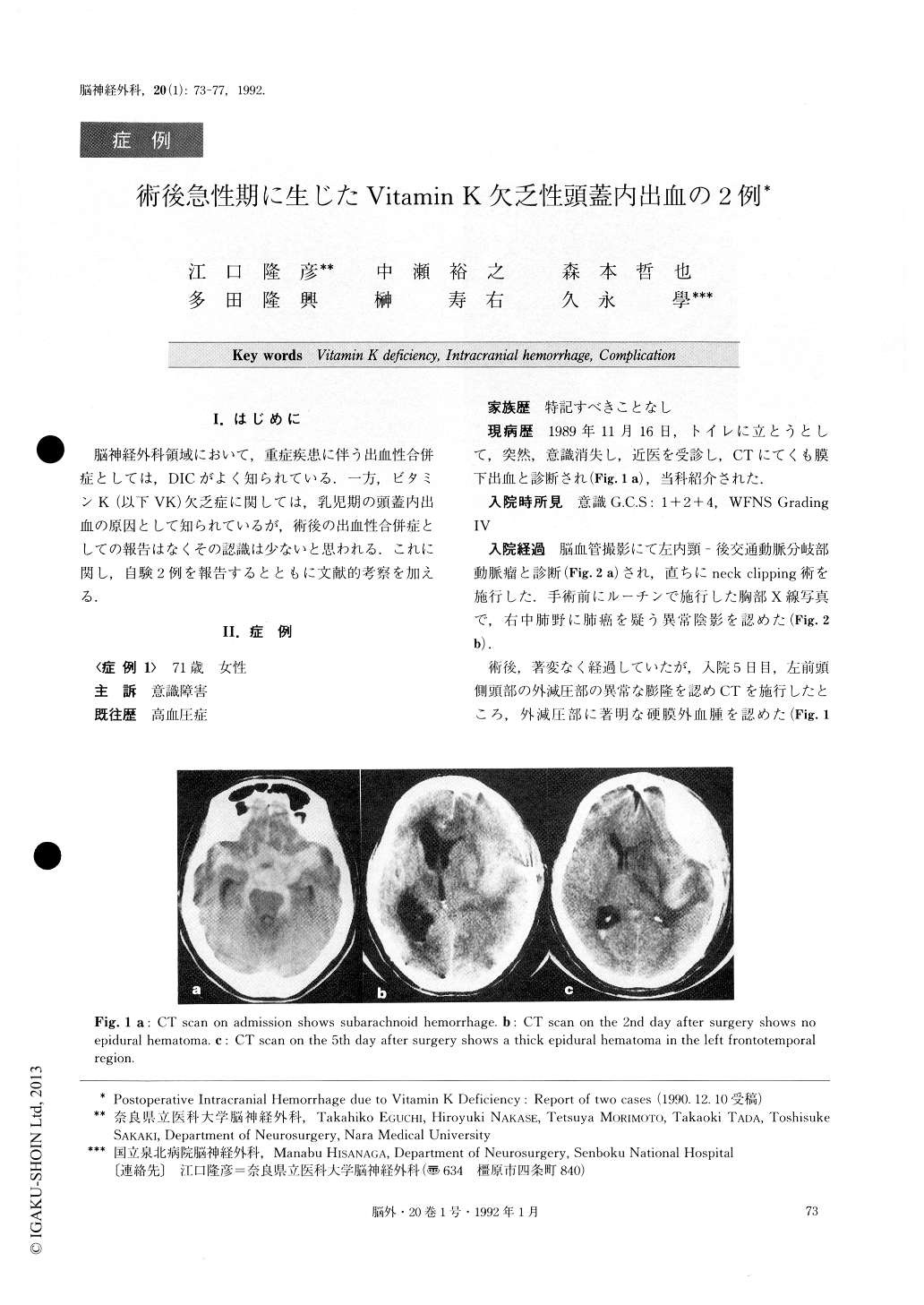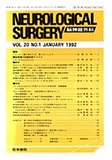Japanese
English
- 有料閲覧
- Abstract 文献概要
- 1ページ目 Look Inside
I.はじめに
脳神経外科領域において,重症疾患に伴う出血性合併症としては,DICがよく知られている.一方,ビタミンK(以下VK)欠乏症に関しては,乳児期の頭蓋内出血の原因として知られているが,術後の出血性合併症としての報告はなくその認識は少ないと思われる.これに関し,自験2例を報告するとともに文献的考察を加える.
Vitamin K deficient hemorrhagic diathesis is well known as a cause of infantile intracranial hemorrhage. Its occurrence, however, as a post-surgical complication is rare and has never been reported previously. Two cases are presented here which illustrate the existence of such a hazard.
Case 1. A 73-year-old woman admitted with sub-arachnoid hemorrhage (WFNS IV) underwent micro-surgical exploration of a left internal carotid aneurysm, and neck clipping of the aneurysm was performed. She had an uneventful postoperative course, but her neuro-logical condition deteriorated suddenly on the fifth postoperative day. CT scan revealed a large epidural hematoma. Case 2. A 6-year-old boy was admitted due to the dysfunction of a ventriculo-peritoneal shunt sys-tem that had previously been placed for hydrocephalus. This dysfunction was thought to be caused by menin-gitis. Twelve days after ventricular drainage and antibio-tic therapy, sudden intraventricular hemorrhage occur-red. In both cases, PT and APTT were markedly pro-longed, FDP slightly increased and fibrinogen slightly decreased. SFMC was positive in case 2. After the administration of vitamin K, PT and APTT were im-mediately normalized.
Recent reports emphasize the adverse effect of anti-biotics that leads to vitamin K deficient hemorrhagic di-athesis, especially, in patients in a cachectic state. In these two cases, such a cachectic condition was not observed. We presume that the cause of vitamin K de-ficiency would be, along with the administration of antibiotics, a preliminary condition of disseminated in-travascular coagulation which is encountered in some neurological disorders including subarachnoid hemor-rhage. We conclude that attention should be paid for these pitfalls in perioperative neurosurgical care.

Copyright © 1992, Igaku-Shoin Ltd. All rights reserved.


